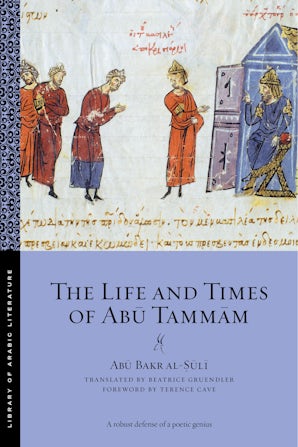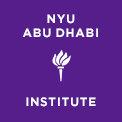
The Life and Times of Abū Tammām
296 Pages
November 2018
ISBN: 9781479868025
A robust defense of a poetic genius
Abū Tammām (d. 231 or 232/845 or 846) is one of the most celebrated poets in the Arabic language. Born in Syria to Greek Christian parents, he converted to Islam and quickly made his name as one of the premier Arabic poets in the caliphal court of Baghdad, promoting a new style of poetry that merged abstract and complex imagery with archaic Bedouin language. Both highly controversial and extremely popular, this sophisticated verse influenced all subsequent poetry in Arabic and epitomized the “modern style” (badīʿ), an avant-garde aesthetic that was very much in step with the intellectual, artistic, and cultural vibrancy of the Abbasid dynasty.
In The Life and Times of Abū Tammām, translated into English for the first time, the courtier and scholar Abū Bakr Muḥammad ibn Yaḥyāal-Ṣūlī (d. 335 or 336/946 or 947) mounts a robust defense of “modern” poetry and of Abū Tammām’s significance as a poet against his detractors, while painting a lively picture of literary life in Baghdad and Samarra. Born into an illustrious family of Turkish origin, al-Ṣūlī was a courtier, companion, and tutor to the Abbasid caliphs. He wrote extensively on caliphal history and poetry and, as a scholar of “modern” poets, made a lasting contribution to the field of Arabic literary history. Like the poet it promotes, al-Ṣūlī's text is groundbreaking: it represents a major step in the development of Arabic poetics, and inaugurates a long line of treatises on innovation in poetry.
An English-only edition.
Reviews
-
"Another welcome addition to the Library of Arabic Literature....In the field of Arabic poetry and poetics in general, and classical Arabic poetry and criticism in particular, I expect the impact of this project to be groundbreaking. The study of Arabic poetry, both modern and classical, has the potential of being significantly affected by the introduction of voices like al-Sulis, especially when presented in fresh and timely translations as is the case here."
— Hoda Fakhreddine, Journal of the American Oriental Society
eBooks
Exam Copy
Please list your name, institutional affiliation, course name and size, and institution address. NYU Press will cancel exam copy orders if information cannot be verified.

